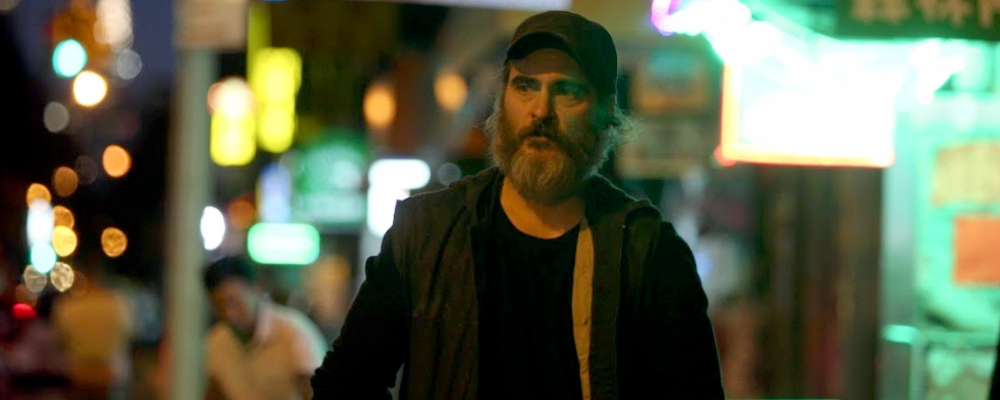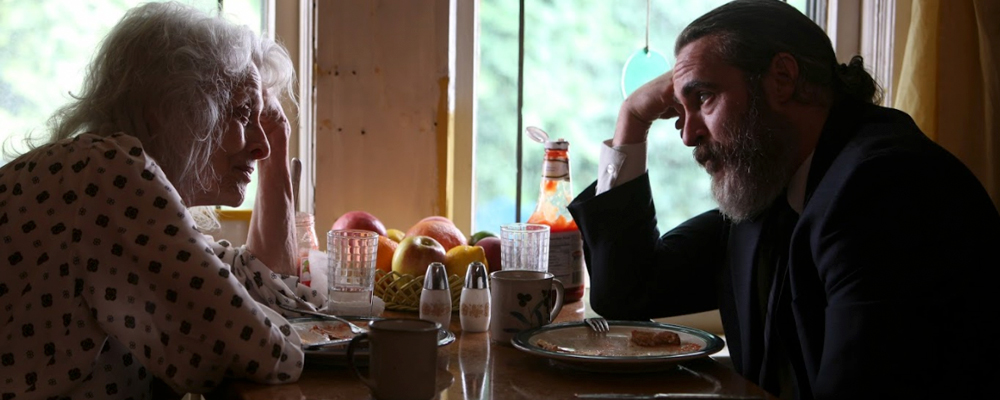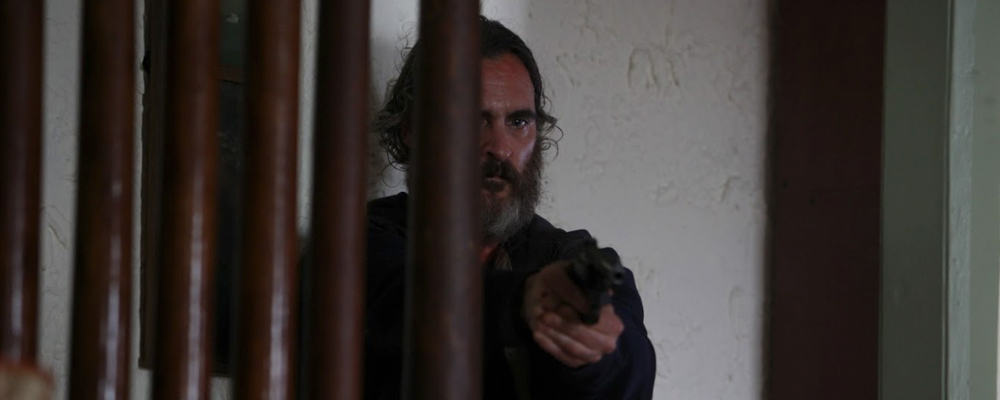Joaquin Phoenix Finds Himself a Reluctant Hero in Art House Thriller ‘You Were Never Really Here’
Sandra Miska
Joaquin Phoenix, an actor known for eccentric tendencies both on and off the screen, and Lynne Ramsay, a Scottish filmmaker known for thinking outside the box, prove to be quite the team with “You Were Never Really Here,” a psychological thriller following Joe (Phoenix) a man suffering from PTSD, not just from his time in the military but also from some trauma that occurred in his childhood. It’s never fully articulated exactly what happened to Joe’s in his past lives, instead Ramsay gives the viewer quick glimpses of the startling images and scenes from Joe’s past the run through his head, making for a feverish journey.
To say that Joe is a loner would be an understatement. Even in a bustling city like New York, where he has presumably lived his whole life, minus his time oversees, our anti-hero has formed few attachments. The only significant person in his life is his elderly mother (Judith Roberts), whom he cares for in his childhood home, and through this relationship we see the humanity in him. Otherwise, he is mostly numb to the world, something that Ramsay has him express in interesting ways such as pulling out his teeth and shoving plastic bags over his head, as if he is desperate to feel something, anything.
Like many war vets, Joe seems to best able to make a living employing the skills he acquired during his time in the service, and it’s apparent from his flashbacks that he had seen more “go down” than most. Joe works as a gun for hire, tracking down missing girls whose parents go through a service run by one John McCleary (John Doman). He soon lands a big job rescuing Nina Votto (promising newcomer Ekaterina Samsonov), the teen daughter of a senator (Alex Manette) who has somehow found herself involved in prostitution, strange circumstances for someone born into such a privileged life. Joe succeeds in this task with little difficulty. However, afterwards, he and the viewer learn in the most jarring way possible that things are not what they seem, and after the violence hits close to home, he finds himself finally experiencing raw emotion.
Ahead of its release, “You Were Never Really Here” has been generating comparisons to the 1976 classic “Taxi Driver,” and there are undeniable similarities between the two films. However, Joe and Robert DeNiro’s Travis Bickle, while similar in that they’re both vets who end up saving prostitutes, are different in key ways. Unlike the garrulous Travis, Joe, a man of few words, isn’t motivated by a desire to root out corruption; he doesn’t see himself as any sort of savior. He’s just surviving the only way he knows how, relatively detached, until things get personal. The best scenes in the film are the ones with just Joe and Nina. Just like his mother, she brings out something tender in him, and he slowly starts to see himself in this abused child, and Phoenix is a marvel to watch here as Joe slowly transforms.
At the end of the day, “You Were Never Really Here” is a true art house film, as it has an ending that’s open for interpretation, somewhat unusual for a thriller. While Ramsay doesn’t answer all questions at the end, somewhat frustrating considering much of the plot is centered around a conspiracy, she offers something different that most will find satisfying.
Like with her earlier film “Morvern Callar,” Ramsay makes some interesting choices concerning sound that are worth mentioning. To prepare for his role here, Ramsay gave Phoenix an audio file of fireworks mixed with gunshots meant to be the soundtrack of Joe’s racing thoughts. A lot of these chaotic sounds make it into the world of the film, along with an old-timey soundtrack of songs that give the film a haunting, timeless feel.
“You Were Never Really Here” opens April 6 in New York and Los Angeles, everywhere April 20.





